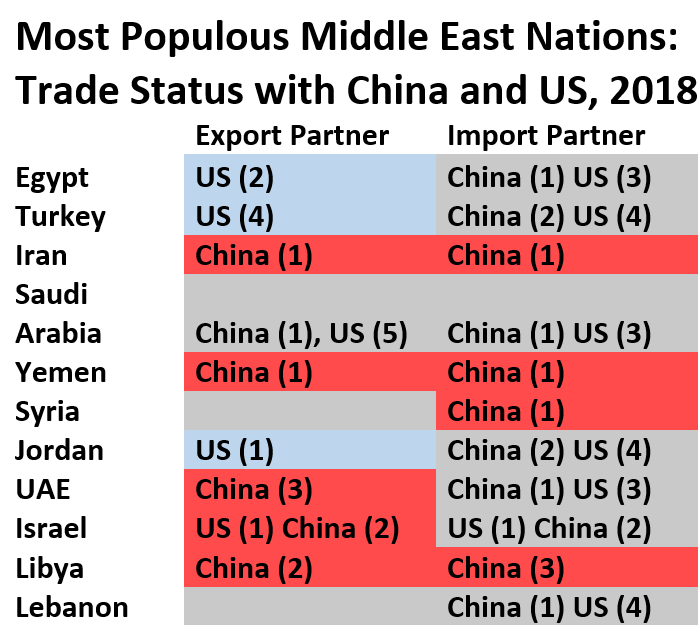Uncertainty for Middle East: Syndication Bureau
Rising Chinese-US tensions create strategic uncertainty around economic-development, foreign policy and even internal politics in the Middle East. US plans to relocate strategic industries, including healthcare and technology, away from China may benefit economies like Egypt or Morocco. “On the other hand, the increasingly zero-sum nature of economic competition between China and the US means that Middle East countries looking to develop hi-tech industries as part of their economic diversification programs will have to factor in the risks of doing business with China,” writes Dnyanesh Kamat. That could require avoiding business with Chinese firms like Huawei, slow microchip manufacturing activity and disrupt some government plans to diversify economies. Analysts anticipate China to fill any vacuum left by the United States and become the largest country-to-country source of funding for infrastructure projects throughout the Middle East. China will expect, in exchange, support from regional leaders on its global policies and initiatives. China will not participate in the region’s conflicts, encouraging détentes, and such trends will increase admiration for China’s political model including centralization, surveillance, propaganda and state-controlled media. A win by Joe Biden, the presumptive Democratic nominee, could improve US engagement with China and give Middle East leaders greater choice in foreign policy. – YaleGlobal
Uncertainty for Middle East: Syndication Bureau
US-China tensions create strategic uncertainty for the Middle East – and China is poised to fill any vacuum in the region left by the United States
Thursday, June 11, 2020
Read the essay from Syndication Bureau about how Chinese-US tensions influence strategic policy choices in the Middle East.
Dnyanesh Kamat is a political analyst on the Middle East and South Asia. He also advises governments on policies and strategic initiatives to foster growth in the creative industries such as media, entertainment and culture.

Syndication Bureau
Copyright © 2020 Syndication Bureau